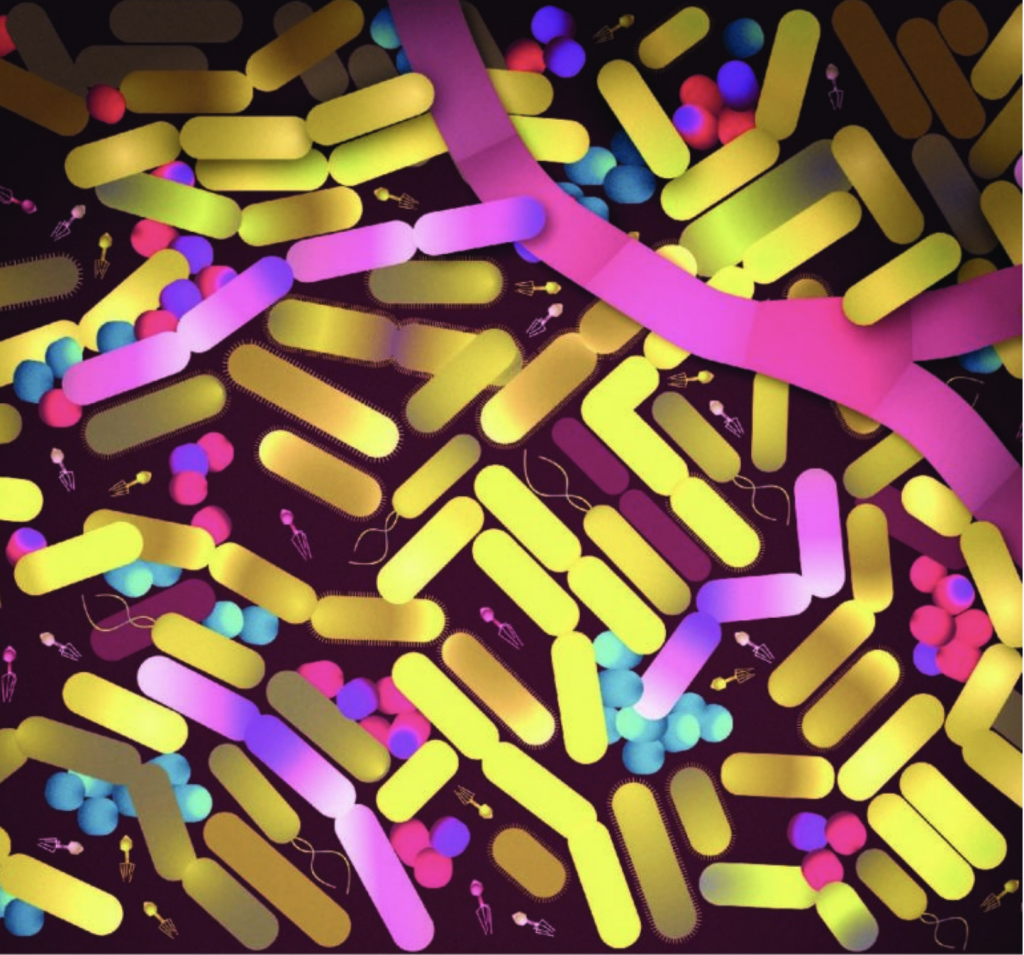Gut Health and the Microbiome

Gut Health and the Microbiome Written by Clare Carrick ANutr (BHSc Nutrition and Health Promotion) Scientifically reviewed by Dr Fathalla Ali, PhD (Paediatrics) 23/12/2021 ‘Gut health’ and the ‘microbiome’ are having a moment in the spotlight right now…and for good reason! The little cohabiting critters that make up our microbiome really do play a huge […]
Excerpt from The First Thousand Days: An Evidence Paper

Excerpt from ‘The First Thousand Days: An Evidence Paper’ Section 3.2.1 The role of the microbiome Written by The Centre for Community Child Health The Royal Children’s Hospital Melbourne September 2017 Vast numbers of bacteria, viruses, and fungi (collectively known as the microbiome) live in and on the human body and play an important role […]
Findings from the American Gut Project

Findings from the American Gut Project Written by Dr Fathalla Ali, PhD Paediatrics 06/12/2021 The first major data of the human microbiome was generated from the American Gut project (AGP). The project included microbial data from 15,096 samples that were collected from 11,336 participants, primarily resident in the United States, United Kingdom, Australia and other […]
The persistent gut microbiota in infancy and it’s origin

The Persistent Gut Microbiota in Infancy and it’s Origin Scientifically reviewed by Dr Fathalla Ali, PhD (Paediatrics) 29/11/2021 During and after birth, the gut of a newborn baby is rapidly colonized with microbiota. This early gut colonization plays an important role in the baby’s immune system development. Factors such as premature birth, cesarean section delivery […]
The early life determinants for Gut Dysbiosis

The early life determinants for Gut Dysbiosis Written by Dr Fathalla Ali, PhD (Paedatrics) 22/11/2021 The gastrointestinal tract is the home for the most diverse and populated bacterial community known as microbiota. Ideally, the gut microbiota lives in a mutually symbiotic relationship with the human body. Whilst the gut provides the well-adapted shelter, the microbiota […]
The introduction to solid foods and gut microbiota stability

The first 1-3 years of life is an important period for the development of our gut microbiota. During this critical time, gut microbiota development progresses from it being a relatively simple microbial community that is less rich and diverse, to a one that is high in richness and diversity.
Diet and Microbiota

The human gastrointestinal tract is the home for trillions of bacteria that are continuously shaped by different factors and amongst these factors is the particular dietary habit followed.
Breastfeeding and the infant gut microbiota at 12 months of age

Feeding human milk to newborn infants has important nutritional, physiological, immunological and psychological benefits that may impact on their long-term growth and development.
The Persistent Effects of Birth Mode on Gut Microbiota Composition, Immune System Development and Antimicrobial Resistance

It is believed that mode of birth (Vaginal or Caesarean) has a significant effect on early gut microbiota acquisition and development. Globally, the rate of caesarean birth is consistently increasing as a result of multiple factors. Among these factors are the increase in the overall income and the easy access to health facilities. In 2015, around 29.7 million births happened by caesarean, accounting for about 18% of the births in 169 countries.
Early Microbiota Colonization and Gut Metabolome

It’s believed that the status of our health in later life is associated with the first bacteria that colonize our gut.





